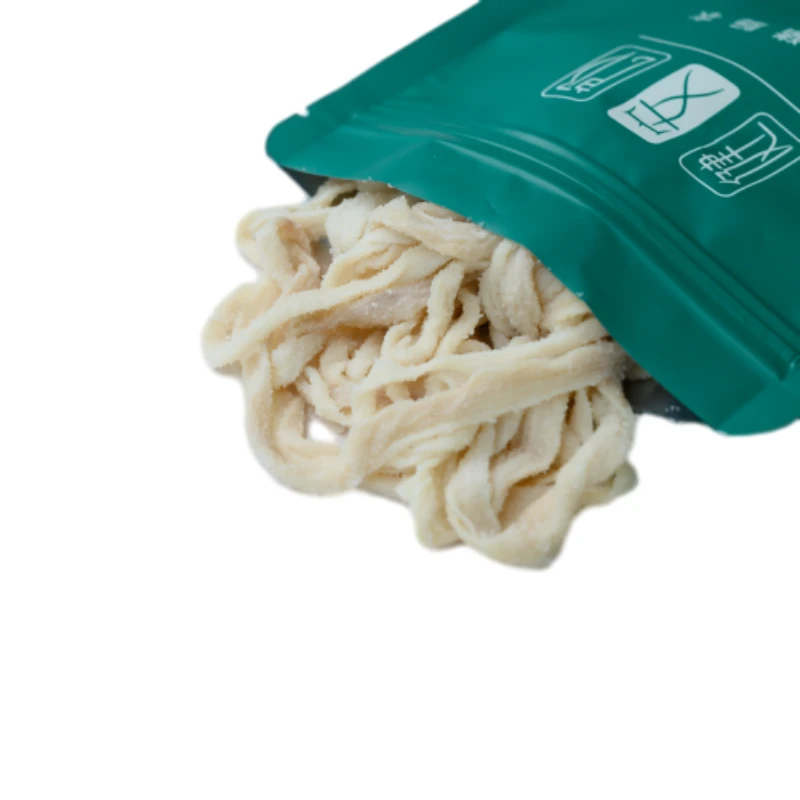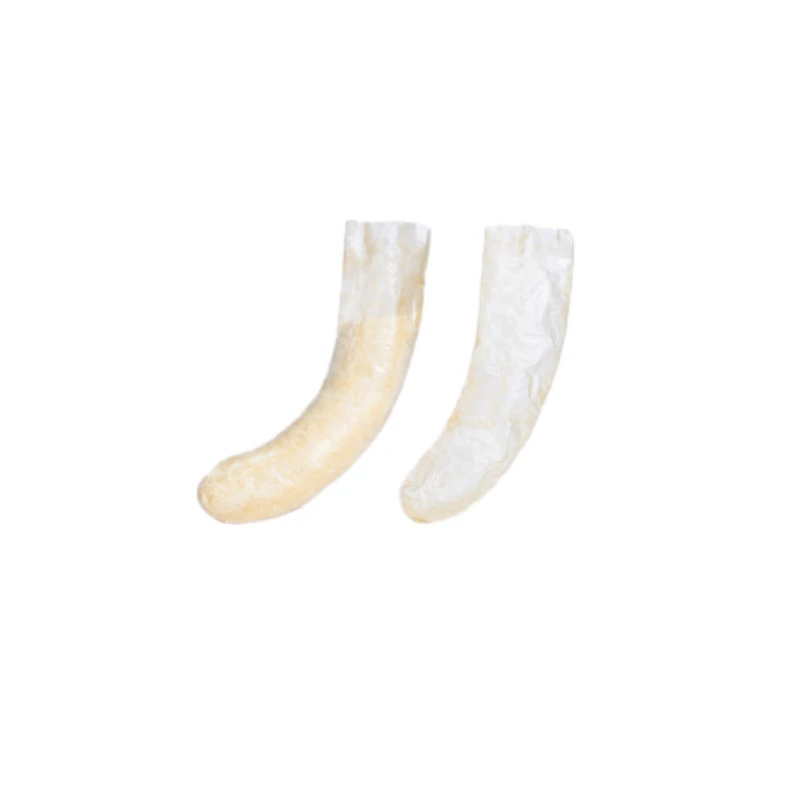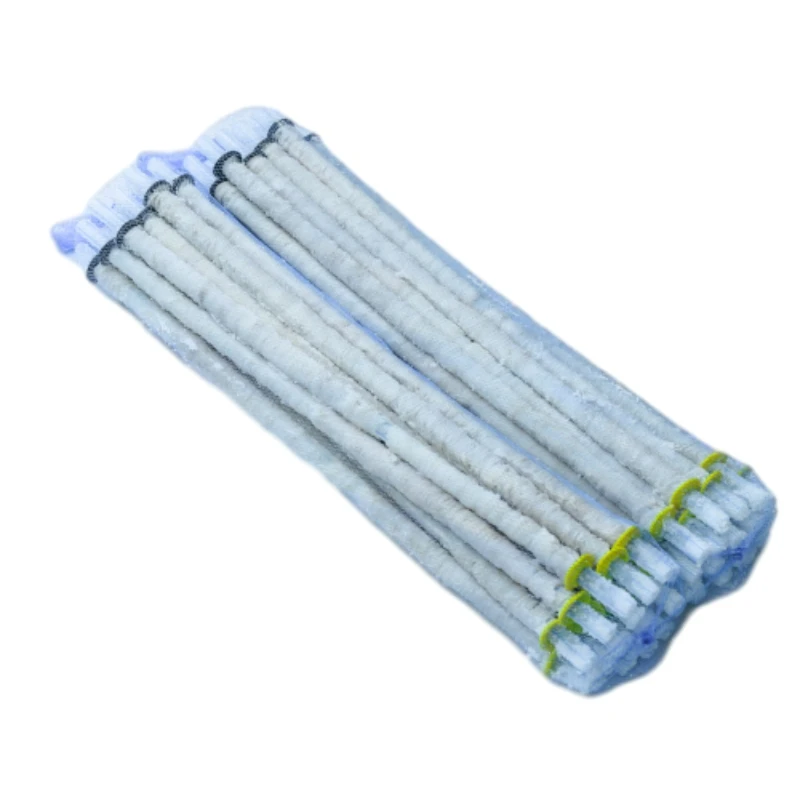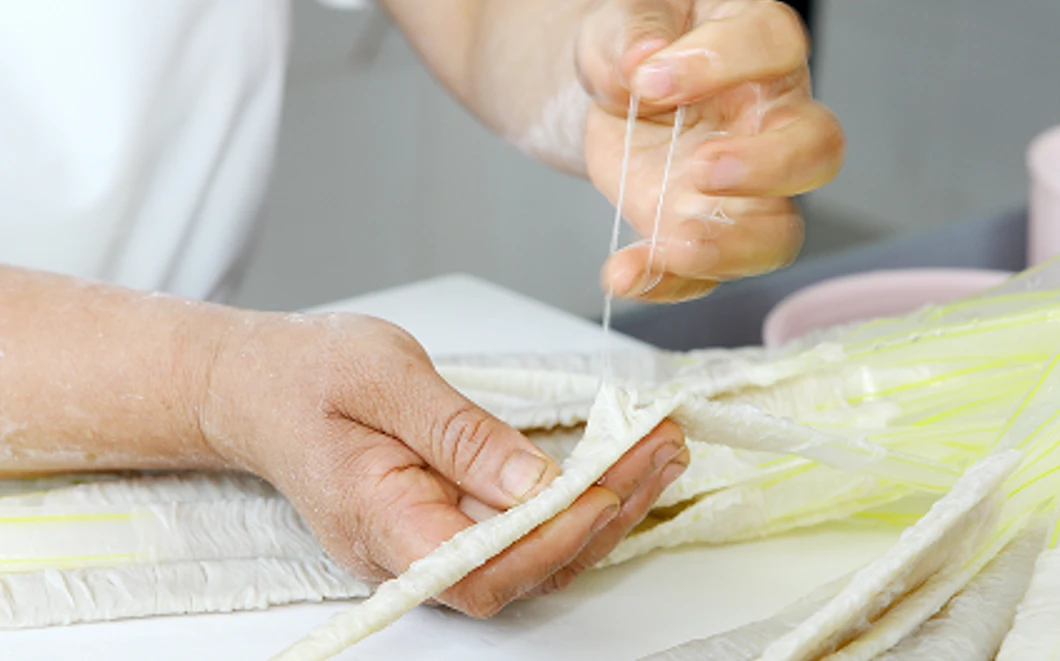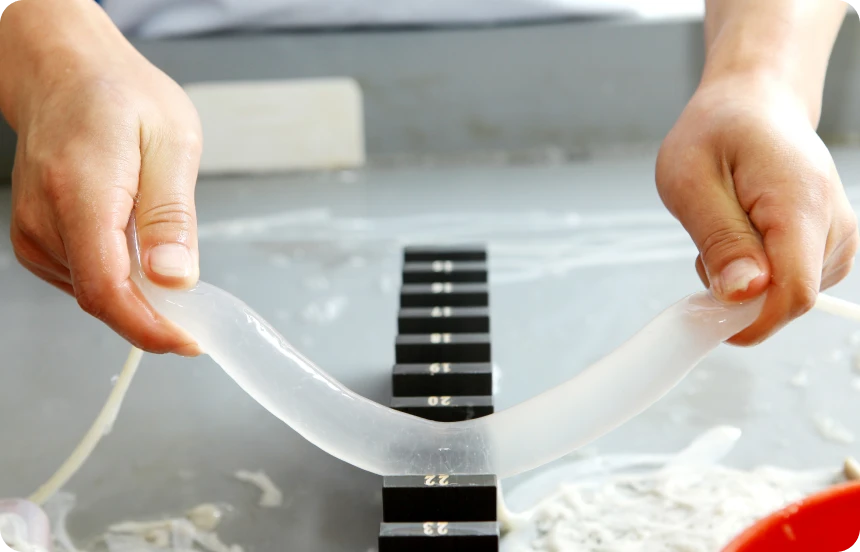Jul . 05, 2025 09:13
- Introduction to Custom Salted Hog Casing
- Technical Edge and Manufacturing Excellence
- Comparative Analysis of Leading Casing Suppliers
- Tailored Solutions: Customization Process and Options
- Industrial Applications and Usage Cases
- Best Practices for Handling and Storage
- Conclusion: The Value of Custom Salted Hog Casing in Modern Sausage Production
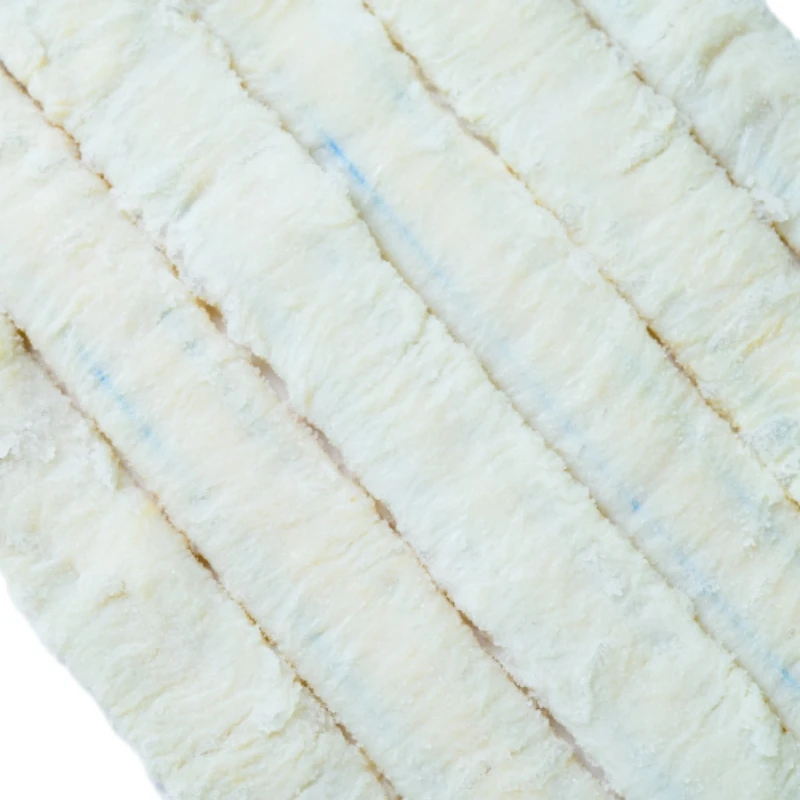
(custom salted hog casing)
Introduction to Custom Salted Hog Casing
Custom salted hog casing represents a vital evolution in the meat processing industry. As consumer preference shifts toward artisanal and regional flavors, the requirements for precise sizing, flexibility, and reliable quality in sausage casings have never been higher. Research published by the Meat Science Association indicates that over 68% of sausage producers in North America now rely on customized casing solutions to enhance product differentiation and processing efficiency. The rising demand is not limited to hog casings—custom salted sheep casing and a spectrum of custom salted sausage casings are carving niches in gourmet and high-volume segments alike.
Customization, particularly in the salting and preservation phase, ensures that each batch maintains optimal tensile strength and elasticity. Moreover, producers using casings tailored to specific branded requirements report up to 23% faster production throughput and a marked reduction in failure rates during stuffing. This introduction will explore the critical importance of customizable casing in maintaining food safety, flavor integrity, and operational excellence.
Technical Edge and Manufacturing Excellence
Modern production of custom salted hog casing
s leverages advanced cleaning, sorting, and salting technologies to maintain consistency and hygiene. Compared to traditional methods, automated cleaning facilities reduce surface contaminants by up to 82% and enable manufacturers to achieve microbiological counts well below regulatory benchmarks. The subtle yet significant distinction in source selection—determining animal age, diet, and even breed—is increasingly noted as a factor for taste and texture consistency, backed by customer satisfaction ratings rising above 90% for premium-grade custom salted sausage casings.
Equally crucial is the controlled salting process. Modern equipment maintains brine salinity to within 0.5% of the target value, extending shelf life without compromising collagen strength. Case manufacturers deploying vacuum-sealed logistics further improve supply chain reliability, resulting in spoilage rates of less than 0.2% annually. Ongoing investment in R&D assures casings are precisely calibrated in diameter—down to increments of 0.5mm—to accommodate the needs of both artisanal and industrial sausage producers.
Furthermore, traceability and certification (such as ISO 22000 and BRC) provide assurance that each casings batch can be monitored through the entire lifecycle. Collectively, these technical capabilities accelerate new product development cycles and fortify brand reputation in a globalized sausage market.
Comparative Analysis of Leading Casing Suppliers
Selecting the optimal supplier is critical. Key factors include consistency, supply reliability, flexibility of customization, adherence to safety standards, and responsiveness of customer support. The following table provides a comparative review of three top international suppliers specializing in custom salted hog casing, as well as their capabilities in related categories.
| Criteria | Supplier A (Europe) | Supplier B (USA) | Supplier C (Asia) |
|---|---|---|---|
| Annual Output | 220M meters/year | 180M meters/year | 260M meters/year |
| Customization Range (Diameter) | 18mm - 38mm | 16mm - 42mm | 16mm - 40mm |
| Sheep Casing Capability | Yes | Yes | Yes |
| Certifications | BRC, ISO 22000 | FSSC 22000, SMETA | ISO 22000, HACCP |
| Average Lead Time (Custom Orders) | 9 days | 14 days | 11 days |
| Failure Rate (Stuffing Process) | 1.1% | 1.5% | 1.4% |
| Average Customer Rating | 4.9/5.0 | 4.7/5.0 | 4.8/5.0 |
As shown, all leading suppliers offer a full spectrum of custom salted sausage casings, but significant differences exist in turnaround times, product range, and quality consistency. These variables directly impact operational flexibility for both established and emerging sausage brands.
Tailored Solutions: Customization Process and Options
Process flexibility forms the foundation for premium custom casings. From initial requirements gathering to prototype runs and full production, the customization journey is defined by close supplier-customer collaboration. Producers typically specify diameter, length, thickness, and salt coverage based on sausage type—be it bratwurst, chorizo, or specialty ethnic varieties.
Modern casing manufacturers utilize computer-guided measurement and sorting devices to comply with granular requests. Key options include:
- Precision Diameter: Custom-selected for product uniformity (usually 18mm–38mm in hog, 16mm–28mm in sheep casings).
- Salt Levels: Adjustable to customer preference for ambient or refrigerated storage.
- Color and Transparency: Tailored for aesthetic appeal, crucial in visible casing sausages.
- Packaging: Vacuum, bulk, or retail-ready formats to maximize freshness and shelf life.
Some suppliers now offer pre-tubed casings for easy application, lowering labor and minimizing casing breakage. Feedback loops—feedback from stuffing machine operators, for example—rapidly inform process tweaks, ensuring long-term consistency. Studies highlight that brands deploying customized casings achieve 16% higher yield rates and improved consumer perceptions due to uniform product appearance.
Industrial Applications and Usage Cases
The adoption of custom salted hog casing has transformed operations in both large-scale and boutique sausage processing. Global sausage production is forecast to reach 15.5 million tons annually by 2027, with custom casings accounting for at least 40% of all natural casing usage, according to the International Meat Secretariat.
Specialty sausage categories—such as low-sodium, organic, or ethnic recipes—demand tailored casings for specific taste and textural results. For example, European-style bratwurst manufacturers overwhelmingly prefer wider, natural-finished hog casings, while Middle Eastern kosher producers opt for sheep casings with customized salt profiles. In North America, breakfast sausage manufacturers now report that over 70% of their products use diameter-customized casings to accommodate automated high-speed linking machines.
Several case studies stand out: A top gourmet producer in Germany improved product shelf life by 18 days using ultra-clean salted hog casings, while a U.S. manufacturer reported operative labor savings of 12% by switching to pre-tubed, custom-salted options. These applications clearly demonstrate how tailored casings drive efficiency, output, and consumer satisfaction.
Best Practices for Handling and Storage
Ensuring maximum yield and food safety begins with proper handling of custom salted sausage casings. On receipt, it is recommended to inspect shipments for color uniformity, moisture content, and overall integrity. For storage, temperatures between 0°C–4°C (32°F–39°F) in humidity-controlled environments preserve elasticity and prevent salt degradation.
Before stuffing, soaking instructions—typically between 60–120 minutes in cool water—are strictly advised by suppliers to ease handling and guarantee flexibility. Regular rotation of inventory, clear batch labeling, and adherence to “first in, first out” policy further minimize the risk of expired or overly desiccated product. In manufacturing settings where automated casing feeders are used, regular cleaning of machine interfaces improves application speed and reduces breakage rates to below 1%.
Finally, suppliers often provide detailed usage guides and real-time technical support, aligning best practices in handling with HACCP and ISO requirements.
Conclusion: The Value of Custom Salted Hog Casing in Modern Sausage Production
Investing in the right custom salted hog casing unlocks tangible benefits across speed, efficiency, and product differentiation—transforming the sausage manufacturing landscape for businesses of all sizes. As demonstrated by the data-driven insights and application examples outlined above, tailored solutions deliver both immediate and long-term ROI, offering clear advantages over standard off-the-shelf casings.
With significant advances in technical processing, quality assurance, and customization capabilities—from casings specifically designed for ethnic delicacies to configurations for high-speed industrial lines—today’s suppliers play a pivotal role in shaping the future of sausage making. Companies leveraging these optimized casing solutions consistently report improved consumer appeal and operational margins, positioning them ahead in a fiercely competitive global marketplace.
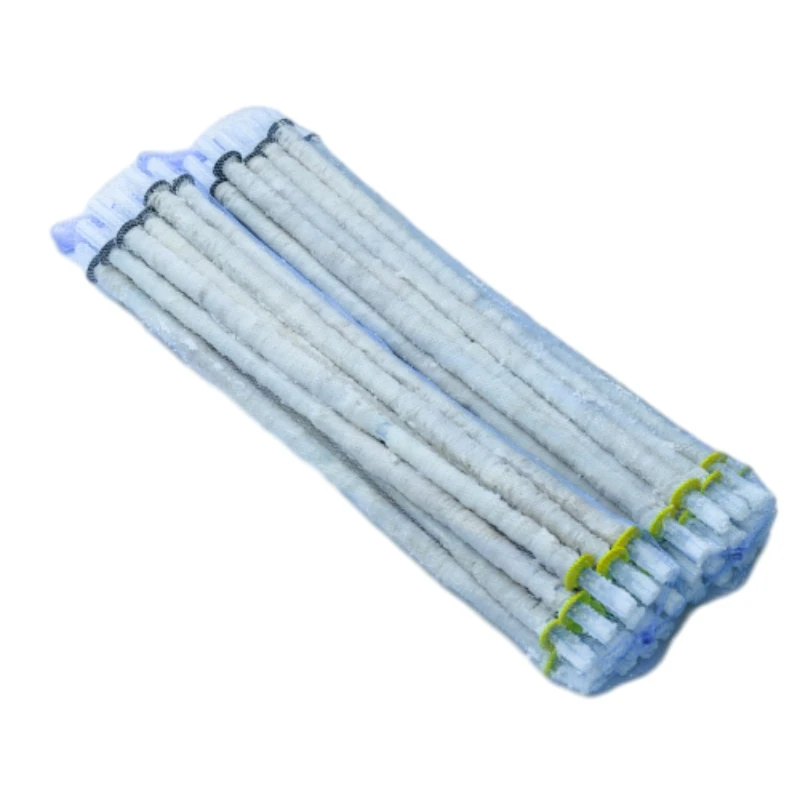
(custom salted hog casing)


